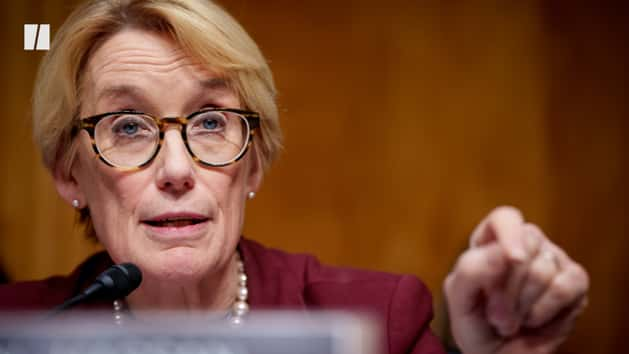If President Donald Trump’s disdain for the federal workforce wasn’t already clear enough before Inauguration Day, the White House is making sure it comes through in its official emails to employees.
Its Office of Personnel Management sent a mass email Thursday night to answer “a number of questions” about its controversial deferred resignation offer. The White House has urged workers to resign by next Thursday and suggested they would still collect pay through September while doing little or no work.
The plan is fuzzy and its legality dubious, hence the need for a follow-up FAQ from the White House. Perhaps in an effort to nudge more workers out the door, whoever drafted the email made sure to insult its recipients while explaining the offer:
Q: Am I allowed to get a second job during the deferred resignation period?
A: Absolutely! We encourage you to find a job in the private sector as soon as you would like to do so. The way to greater American prosperity is encouraging people to move from their lower productivity jobs in the public sector to higher productivity jobs in the private sector. [emphasis added]
The email, from [email protected], also told workers they would not be expected to work during the deferral period but could still collect pay and accrue benefits.
“You are most welcome stay [sic] at home and relax or to travel to your dream destination. Whatever you would like,” it reads.
The deferred resignation proposal has been called a “buyout,” but there is no lump sum payment involved. The idea, as portrayed by the White House, is that an employee could submit a September resignation now, be exempt from the return-to-office mandate and remain on the payroll for the next eight months – while kicking their feet up or taking a new job in the meantime.
But the letter employees are asked to sign has some murky language. It states merely that an agency will “likely make adjustments” to your job if you resign. Those could include “moving, eliminating, consolidating, reassigning my position and tasks, reducing my official duties, and/or placing me on paid administrative leave.”

The American Federation of Government Employees, which represents 800,000 workers, issued a question-and-answer memo of its own, urging employees to exercise a lot of caution with the offer.
It notes that workers whose resignations were accepted wouldn’t be required to work in person, “but may be assigned remote work duties.” It also said that while the White House’s offer may not prohibit working a different job, “other existing policies, such as agency-specific regulations requiring prior authorization for outside work, are likely to apply.”
One of the biggest problems with the deferred resignation offer is that the government does not have guaranteed funding beyond March 14. Congress must pass a budget or new continuing resolution by then; otherwise federal agencies won’t have the money to pay employees ― including those who resigned.
The union’s advice: Buyer beware.
“It is unclear what recourse, if any, employees might have if the government fails to honor the terms of their deferred resignation,” the AFGE noted. “Even if the email and FAQ page are interpreted as an implied contract or offer, there is no guarantee that such a claim would be enforceable.”
Go Ad-Free — And Protect The Free Press
Already contributed? Log in to hide these messages.
Are you a federal employee with something to share? You can email our reporter here, or contact him over Signal at davejamieson.99.
